‘Sets us up for the next decade’: Inside Microsoft’s new AI era
Microsoft’s boss says its new AI computers represent a ‘seminal moment’ for the $4.8 trillion company, akin to the launch of Windows 95 three decades ago.
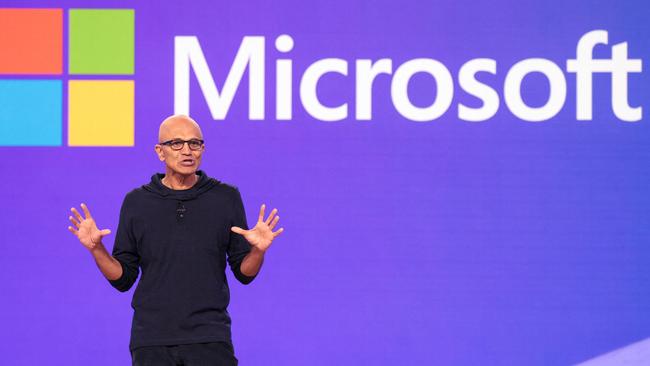
‘A new AI era begins’ – or so proclaims the slogan emblazoned on a giant purple billboard at an entrance to a marquee set up beside Microsoft’s new cricket oval at its sprawling headquarters in Redmond, Seattle.
Like it or not, artificial intelligence is now part of our lives. Even if we don’t realise it.
Coles, for example, uses AI to keep groceries on the shelves, harnessing insights from more than 2000 data sets to make 1.6 billion stock predictions each day. It also makes recommendations to customers to deliver more personalised shopping.
Now that same technology is being made more available to the masses.
Inside the tent at Redmond, Microsoft chief executive Satya Nadella reveals a new class of personal computers that have been optimised to perform a range of power-hungry artificial intelligence tasks.
He calls these computers Copilot+ PCs, and says they represent a “seminal moment” for the $US3.19 trillion ($4.82 trillion) company akin to the launch of Windows 95 three decades ago.
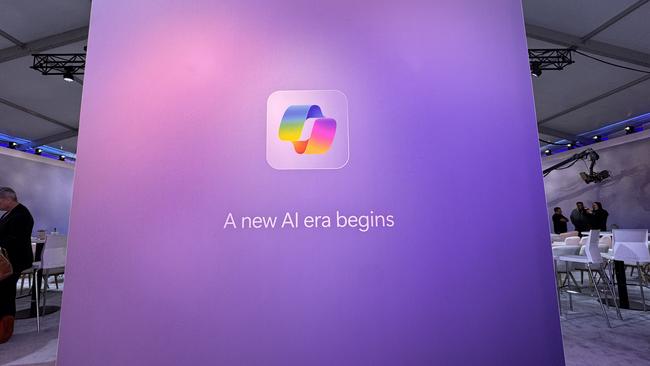
Microsoft believes these computers – which use efficient ARM processors, similar to the chips inside smartphones – will set it up for the next decade and change the way we interact with PCs. In the next year alone, it expects to sell 50 million of them.
It’s a bold claim and comes after a flurry of product launches where the world’s biggest consumer electronics manufacturers have slapped AI labels on anything from televisions to fridges, at times diluting the much-hyped technology’s promises and triggering scepticism from the likes of Australian retail tycoon Gerry Harvey.
But Microsoft says its new AI PCs are the real deal. The more energy efficient chips allow the new artificial intelligence features built-in to Windows to run constantly without draining power and slowing computing speed.
If you still want to use your computer like you always have, you benefit from longer battery life and cooler-running machines – a move that has finally made Microsoft competitive with Apple, which has used ARM processors in its MacBooks for years.
While accounting for about 10 per cent of the world’s PC market, Apple has been gaining more share since it switched from using Intel chips to its own ARM processors – known as Apple Silicon – in 2020.
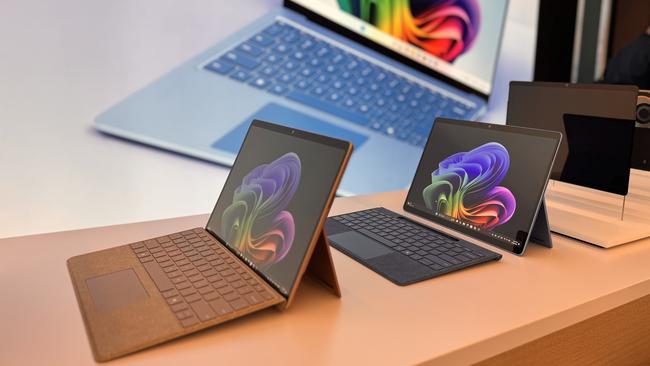
Microsoft says it has been watching Apple closely, and boasts that its new Copilot+ PCs are 58 per cent faster than the latest MacBook Air.
The Copilot+ PCs news AI capabilities can also teach people to play games like Minecraft, using their voice in a conversational style with a bot, or create artwork in myriad styles using a few crude brushstrokes on a screen with a stylus.
But for Mr Nadella, the launch of the new PCs represents the realisation of a higher ambition.
“If you think about, even going all the way back to the beginning of modern computing, let’s say 70 years ago, there have been two real dreams we’ve had,” he says.
“The first is can computers understand us instead of us having to understand computers? And the second was … as you digitise more artefacts on peoples, places and things, and you have more information, can computers help us reason, plan and act more effectively on all that information?
“And here we are. I think that we’ve had real breakthroughs on both fronts.”
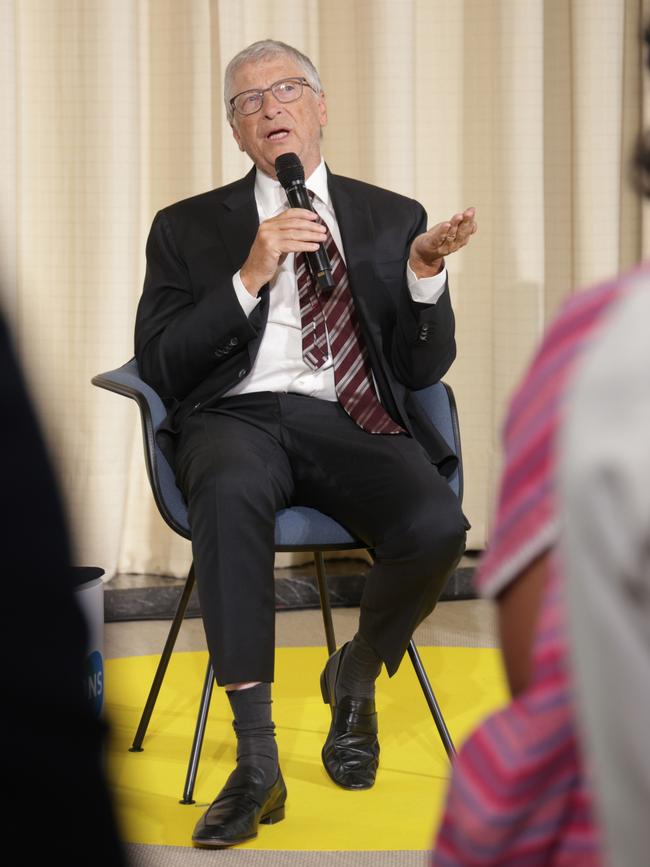
Microsoft co-founder Bill Gates says the speed of AI innovation – which he believes can help combat climate change and social inequality – is happening faster than the microprocessor boom. He says: “Soon the pre-AI period will seem as distant as the days when using a computer meant typing at a C:> prompt rather than tapping on a screen.”
Mr Nadella agrees. He says the rate of technology diffusion has been “unlike anything I’ve seen in my professional career – and it’s just increasing”.
“I’ll always remember this moment in January 2023 when I met a rural Indian farmer who was able to reason over some government farm subsidies that he had heard about on television using GPT-3.5 and his voice. It was remarkable.
“For me, it just brought home the power of all of this because the frontier model developed in the west coast of the United States just a few months earlier was used by a developer in India to directly improve the life of a rural Indian farmer.
“It’s just great to see the democratisation force which we love to talk about, but to witness it has just been something.”
Among Microsoft’s AI upgrades is a feature called Recall, which helps computers better understand a user’s intent. It aims to solve a common problem with using PCs – how to find a particular file or document. You can remember the content, but you can’t remember where you saved it.
Microsoft head of Windows and devices Pavan Davuluri says the new PCs can constantly capture what’s viewed on your screen – not just files you’ve worked on but also what web pages you’ve looked at. (The feature can be turned off.)
Generative AI then kicks in and via a few basic verbal prompts, people find a particular document or web page they have viewed previously.
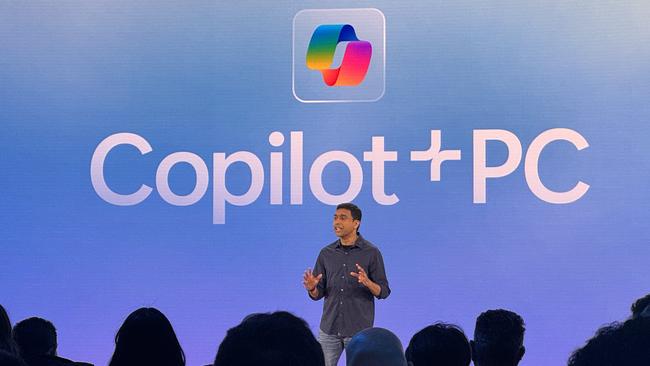
“If you’re searching for a picture of a red barn door, you don’t typically search by saying ‘find me a picture with the red barn door’. You’re usually searching for files and folders, names and dates and all that stuff. And I think now the operating system is going to start making it more simple for you,” Mr Davuluri says.
“AI is woven into every layer of these devices, from the silicon to the operating system, with the most powerful PC NPUs capable of delivering over 40 trillion operations per second. This new class of PCs is up to 20 times as powerful, and 100 times as efficient for running AI workloads, compared to traditional PCs from just a few years ago.”
Mr Davuluri says another feature is the ability for AI “agents” to work in the background, giving people “nudges to move through your flow of activity” – a task he says would be impossible with older processors (it would sap too much power) and why the new AI capabilities couldn’t be simply “bolted on” as a Windows upgrade.
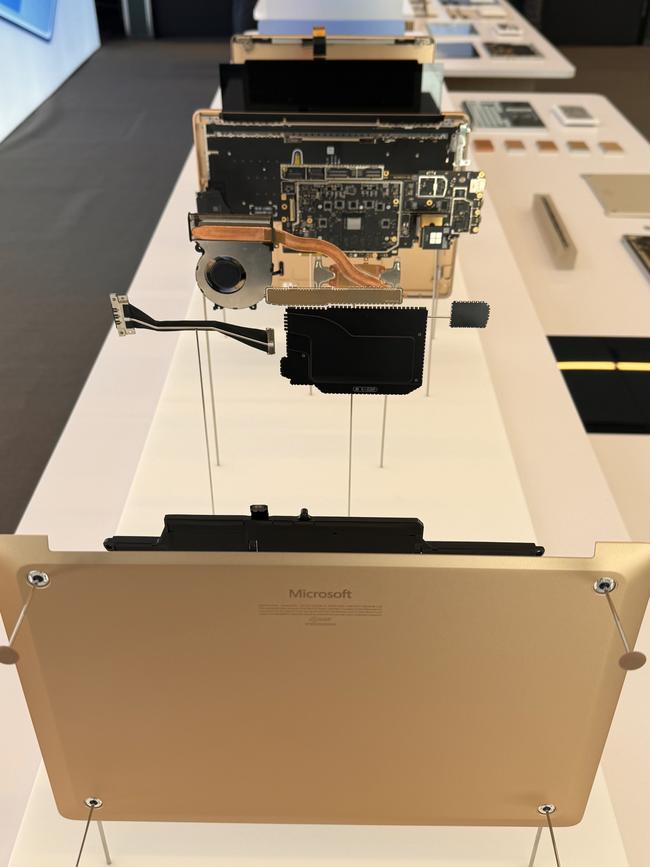
Microsoft has also introduced Copilot Studio, which allows developers to build copilots that can manage multiple workflows and complete tasks independently within defined guardrails.
John Montgomery, corporate vice president of program management and AI platform at Microsoft, says the ability for artificial intelligence to run in the background is a big step.
“Right now we experience a lot of AI interactively – type a thing and I get an answer back immediately. Most of the world isn’t like that,” Mr Montgomery tells The Weekend Australian.
“Let’s imagine you’re writing a story. There is a long running task that is occurring. You’re going to talk to me, you’re going to talk to some other people. You’re probably going to do some other research. It’s all going to go into your notepad. It’s a long running task.
“At some point, the task will come to completion and you could actually have an agent in the background that says ‘you actually have enough information now and the deadline is in three days, would you like me to scaffold up an outline?’ That is an entirely possible scenario if you have a background agent.”
And that’s just the start.
“There’s so many long running processes. We see this in businesses … all the time,” Mr Montgomery said.
“You open a purchase order in March, it’s not fulfilled until July. But the system in the background can actually be watching for the customer support to submit an invoice to go into the system and it can read through the invoice and match the invoice line items against the purchase order line items and basically route that. The idea of having background agents really is tremendously empowering.”
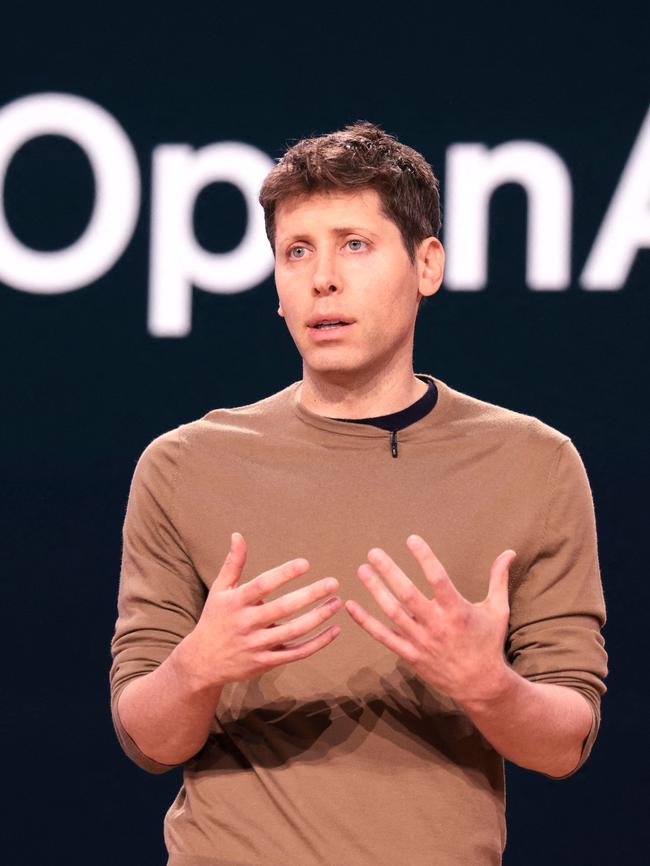
But Sam Altman, the chief executive of ChatGPT maker Open AI, has warned people not to expect artificial intelligence to do all the work for them and it’s not a shortcut to creating a “great product” or business.
“AI alone is a new enabler, but it does not automatically break the rules of business. And so, you can use this as a new thing to do, but you still have to figure out how you’re going to build enduring value in whatever you’re doing. And it’s easy to lose sight of that in the excitement of the gold rush,” Mr Altman says.
“When the mobile phone revolution started or really got going, 2008-2009, you would see people say ‘we’re a mobile company’. We’re having a mobile app. And then only a few years later, no one said they were a mobile company, because it was table stakes.”
Mr Gates – who says philanthropy is his full-time job these days – says technically, the term artificial intelligence refers to a model created to solve a specific problem or provide a particular service – which ChatGPT’s human-like chatbot offers.
“By contrast, the term artificial general intelligence (AGI) refers to software that’s capable of learning any task or subject. AGI doesn’t exist yet — there is a robust debate going on in the computing industry about how to create it, and whether it can even be created at all,” he wrote in a blog post last year.
Still, Mr Gates says the technology had the power help overcome the world’s biggest problems, including climate change.
“AIs can help develop better seeds based on local conditions, advise farmers on the best seeds to plant based on the soil and weather in their area, and help develop drugs and vaccines for livestock. As extreme weather and climate change put even more pressure on subsistence farmers in low-income countries, these advances will be even more important.”
And Mr Altman says those advances will come more quickly than expected, with the technology becoming cheaper but more powerful.
“Speed and cost really matter to us. With GPT-4o, we were able to bring the price down by half and double the speeds,” Mr Altman says.
“New modalities really matter. Voice mode has been actually a genuine surprise for me. But it’s the overall intelligence that will be coming that I think matters the most.”
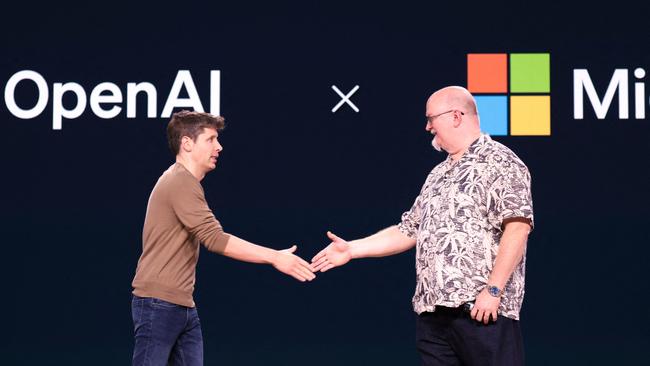
Microsoft chief technology officer Kevin Scott, who has been instrumental in forging the company’s partnership with OpenAI, says the technology could shake up healthcare and ease social inequality.
He says his elderly mother, who lives in central Virginia, could have had a thyroid problem alleviated faster if doctors embraced AI.
“The healthcare system in the part of the world where my mom lives is super overburdened. It’s not a place where tons of people are sort of moving for economic opportunity. It’s one of those places where people tend to move away from to seek economic opportunity, which has impacts on everything that is happening in that part of the world.
“I was looking at how AI could have helped relieve the suffering that she was experiencing. If doctors everywhere had access to these tools, a lot of what she went through could have been immediately alleviated.
“If you just take her symptoms that she was presenting and put it into GPT-4, along with her chart, it would immediately say ‘go get this test, which is going to help find the root cause’. And then the results of the tests could be input into the same session, which would then sort of give a set of recommendations to doctors about the course of therapy.”
The author travelled to Seattle as a guest of Microsoft.


To join the conversation, please log in. Don't have an account? Register
Join the conversation, you are commenting as Logout